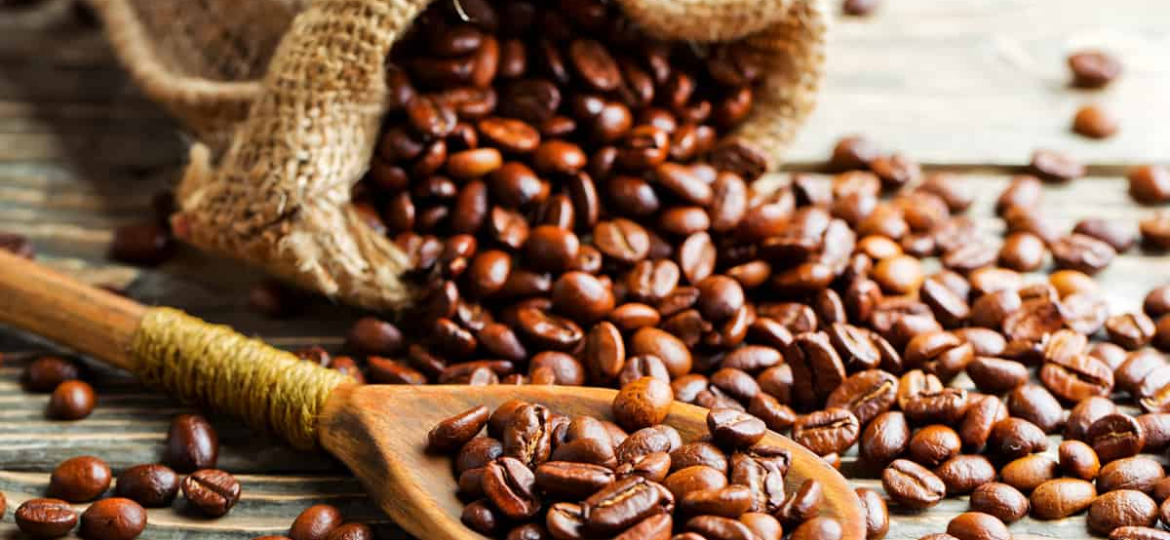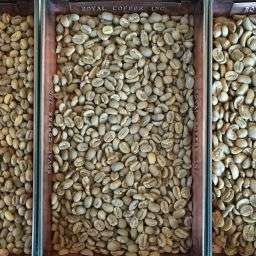
The practice of eating coffee beans traces back to ancient cultures, long before the invention of brewing. Ethiopian folklore credits a goatherd named Kaldi with the discovery of coffee after he noticed his goats frolicking energetically upon eating red berries from a certain bush. These berries contained the now-famous coffee beans. This anecdotal origin points to a history where coffee beans were consumed whole for energy and sustenance during long journeys or hunting expeditions.
Raw and roasted coffee beans offer different experiences and benefits. Raw, or green, beans are those that have not been roasted and thus retain their natural compounds in higher concentrations. Roasted beans, on the other hand, undergo a process that alters their chemical composition, affecting flavor, aroma, and health properties. The choice between consuming raw versus roasted beans largely depends on personal taste preferences and desired health benefits.
Health Benefits and Nutritional Value
Antioxidants and Chlorogenic Acid Benefits
Coffee beans, particularly in their raw form, are rich in antioxidants, including chlorogenic acid. This compound is known for its health benefits, such as reducing inflammation and blood pressure, and it has a protective effect against certain diseases. Chlorogenic acid is more abundant in green coffee beans than in roasted ones, as the roasting process can reduce its content.
Caffeine’s Effects on Energy and Mental Clarity
Caffeine, a well-known stimulant found in coffee beans, is praised for its ability to enhance mental alertness and energy levels.
Consuming coffee beans can provide a more immediate release of caffeine compared to drinking brewed coffee, potentially offering a quicker boost to mental clarity and focus. However, it’s important to consume caffeine in moderation to avoid adverse effects such as jitters or sleep disturbances.
Fiber Content and Digestive Health
Apart from their stimulating effects, coffee beans are a source of dietary fiber. This nutrient plays a vital role in maintaining digestive health by promoting regular bowel movements and preventing constipation. The fiber content in coffee beans can also aid in appetite control and may contribute to a feeling of fullness, which can be beneficial for weight management.
Overview of the Downsides
While consuming raw coffee beans may offer numerous health benefits, there are also potential downsides to consider. These include heartburn, an adverse taste experience for some, and possible digestive issues. The high acidity of raw coffee beans can lead to heartburn, particularly in individuals with acid reflux disease or sensitivity to acidic foods.
Additionally, the taste of raw coffee beans may not be palatable to everyone, and the high fiber content, while beneficial, can cause digestive discomfort in some individuals.
Caffeine-Related Risks
The caffeine content in coffee beans is significantly concentrated, leading to rapid absorption when consumed directly. This can result in sleep disturbances, with the effects of caffeine lasting up to 9.5 hours in some individuals, thereby affecting sleep quality and duration.
Excessive intake of caffeine can also increase anxiety, nervousness, and in some cases, induce palpitations or tremors, especially in individuals with a predisposition to anxiety disorders or those who are particularly sensitive to caffeine.
Impact on Heart Health
There are concerns about the impact of consuming coffee beans on heart health, primarily due to the potential for exacerbating heartburn and the theoretical risk of contributing to heart disease. While the antioxidants in coffee beans can offer protective benefits, the caffeine and other compounds may increase heart rate and blood pressure in some individuals, warranting moderation in consumption.
Considerations for Specific Groups
Certain groups need to be particularly cautious about consuming coffee beans. Individuals with caffeine sensitivity may experience adverse effects even from small quantities. Pregnant women are advised to limit their caffeine intake due to the risk of pregnancy complications, making it important for them to consult healthcare providers before adding coffee beans to their diet.
Recommended Daily Limits and Moderation Tips
To minimize the risks associated with consuming coffee beans, it’s crucial to adhere to recommended daily limits for caffeine intake (usually up to 400 mg for most adults, equating to about 20-30 coffee beans). Moderation is key, as is paying attention to one’s body’s response to caffeine.
Decaffeinated Options
For those sensitive to caffeine or looking to enjoy coffee beans without the stimulating effects, decaffeinated options are available. Decaf coffee beans undergo a process to remove most of the caffeine, allowing individuals to enjoy the taste and nutritional benefits of coffee beans without the caffeine-related side effects.
Creative Consumption Methods
Incorporating coffee beans into your diet can be both enjoyable and safe when done creatively. Roasting coffee beans can enhance their flavor, making them more palatable. Chocolate coating not only masks the bitter taste but also adds a delightful contrast in flavors.
For a nutritious and tasty option, adding ground coffee beans to smoothies can introduce an interesting flavor profile while mitigating some of the direct impacts of eating the beans whole. These methods allow for the enjoyment of coffee beans’ unique taste and health benefits in moderation and with reduced risk of adverse effects.
FAQs
Is It Safe to Eat Coffee Beans?
Yes, eating coffee beans in moderation is generally safe for most people. However, due to their high caffeine content and acidity, individuals with caffeine sensitivity or digestive issues should consume them cautiously.
What Are the Nutritional Benefits of Eating Coffee Beans?
Coffee beans are rich in antioxidants, such as chlorogenic acid, which may offer health benefits including reduced inflammation and protection against chronic diseases. They also contain fiber and essential nutrients like magnesium and vitamin B2, contributing to digestive health and energy metabolism.
What Are the Best Coffee Beans to Eat?
Medium or dark-roasted Arabica beans are often preferred for eating due to their smoother, more complex flavor profiles compared to Robusta beans. Flavored coffee beans can also be a tasty option as the additional flavorings help mask the natural bitterness of the beans.
How Can You Make Chocolate-Covered Coffee Beans at Home?
To make chocolate-covered coffee beans at home, simply melt chocolate in a double boiler or microwave, dip the roasted coffee beans in the melted chocolate, then place them on a parchment paper to cool and harden. This method offers a delicious way to enjoy coffee beans with the added sweetness and texture of chocolate.
Is There a Difference in Health Impacts Between Eating and Drinking Coffee Beans?
Eating coffee beans provides a more concentrated source of caffeine and nutrients than drinking brewed coffee, which may result in quicker absorption of caffeine. However, brewing coffee can reduce some of the compounds that cause digestive discomfort, making it a better option for those with sensitive stomachs.
Final Thoughts
In conclusion, eating coffee beans can offer unique health benefits, including a rich supply of antioxidants and nutrients. However, the potential risks, such as increased caffeine absorption and digestive discomfort, underscore the importance of moderation.
For those interested in exploring this option, selecting the right type of bean, considering decaffeinated varieties, and integrating beans into the diet creatively can enhance the experience while minimizing adverse effects. Listening to one’s body and adjusting consumption accordingly is crucial to enjoying the benefits of coffee beans safely and healthily.









